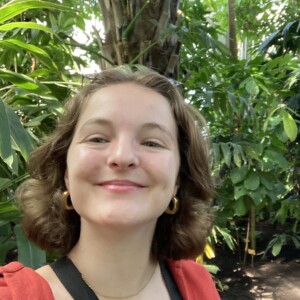
Alannah Vaughan
University of Warwick
Project
Do Microbe-Mineral Interactions Influence Nitrogen Cycle Dynamics?
Supervisors
- Dr. Ryan Mushinski
- Professor Gary Bending
PhD Summary
My project aims to investigate how soil microbes may interact with the mineral fraction of the soil in order to access organic nitrogen which has formed mineral-associated organic matter (MAOM) complexes with the minerals. MAOM has previously been viewed as a very stable sink of organic nitrogen in soil ecosystems, due to the slow turnover time of the associated organic matter, however research is beginning to demonstrate how MAOM can act as a source of organic matter and how microbes may work to destabilise the complexes to access the nutrients. Improving our understanding of how soil mineralogy may influence the movement of nitrogen compounds through the soil, and therefore how accessible it is to nitrogen cycling bacteria, may have significant implications for predicting the outgassing of certain volatile nitrogen oxides, which can impact air quality, human health and global radiative forcings.
Previous activity
I previously completed a BASc in Life Sciences and Global Sustainable Development at the University of Warwick, where I developed my interest in sustainability and microbiology. It was here that I first encountered environmental microbiology as a field of research and realised that it successfully combined my passions of protecting the environment and pursing the sustainability of human activity, and my interest in microbiology. I completed a dissertation project on the potential for the use of fungi to rewild degraded soil ecosystems as well as a research project investigating molecular mechanisms of plant immunity against pathogens.
Why did you choose doctoral research?
Throughout my undergraduate degree I found a great affinity for research, although due to Covid-19 I had had limited lab experience and therefore experience working to produce and analyse primary quantitative data. I enjoy problem solving and found developing experiments to fill knowledge gaps during my research project really exciting. Doctoral research presented me with the opportunity to develop my research and lab skills and contribute to the knowledge base of an area I was passionate about. In addition, it represented a challenge to myself, to push myself further than I have before and step far out of my comfort zone, as someone who struggles with anxiety.
Why did you choose CENTA?
As someone who did not complete a masters, I felt that a doctoral studentship programme like those offered by CENTA would provide me with more support and training structure, to ensure that I could develop the skills to excel in my project and beyond. In addition to this, the connection to NERC and the environmentally minded organisations it is affiliated with, meant that CENTA offered me the opportunity to connect with the foremost researchers and practitioners in my area in the UK and further afield, as well as with a PhD cohort of similarly environmentally passionate students.
Future plans
Undertaking a PhD project will develop both personal and professional skills, such as project management and planning, managing my anxiety, networking, and technical laboratory skills. My future plans are currently quite open, with interest in continuing in academia as well as in policy and industry. However, I know that completing a CENTA studentship will give me the opportunity to connect with practitioners in all of these areas, gain a better insight into the opportunities which may be out there, and develop transferable skills which will serve me well wherever I move on to in the future.
